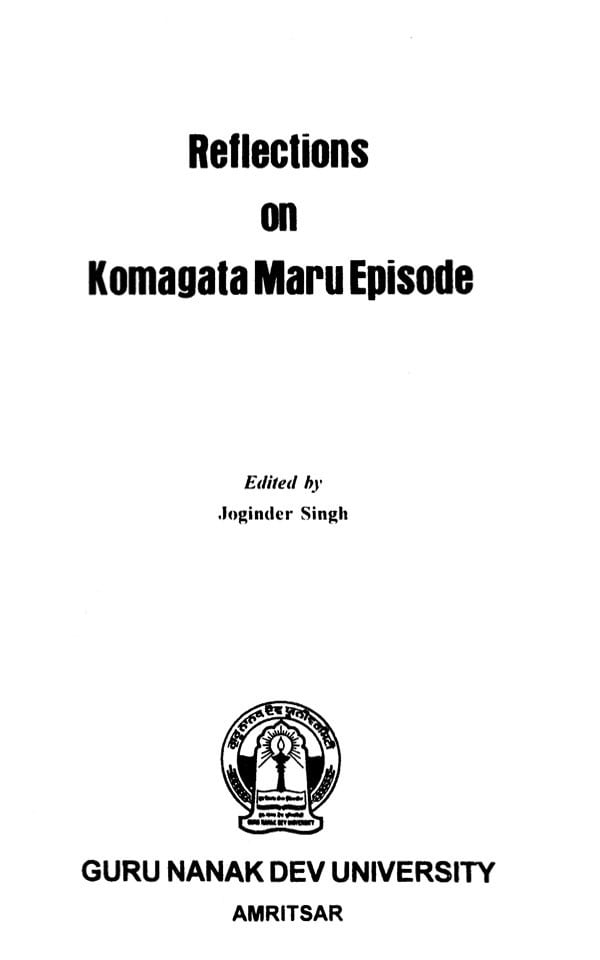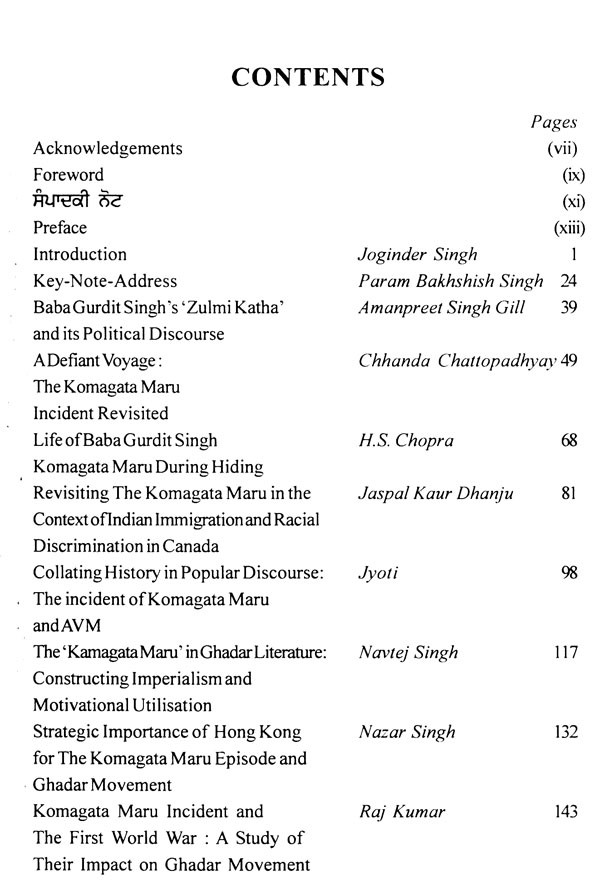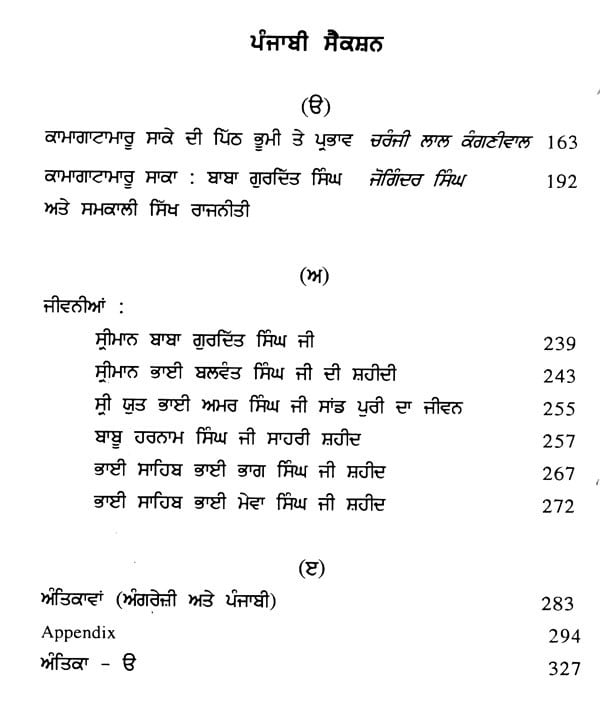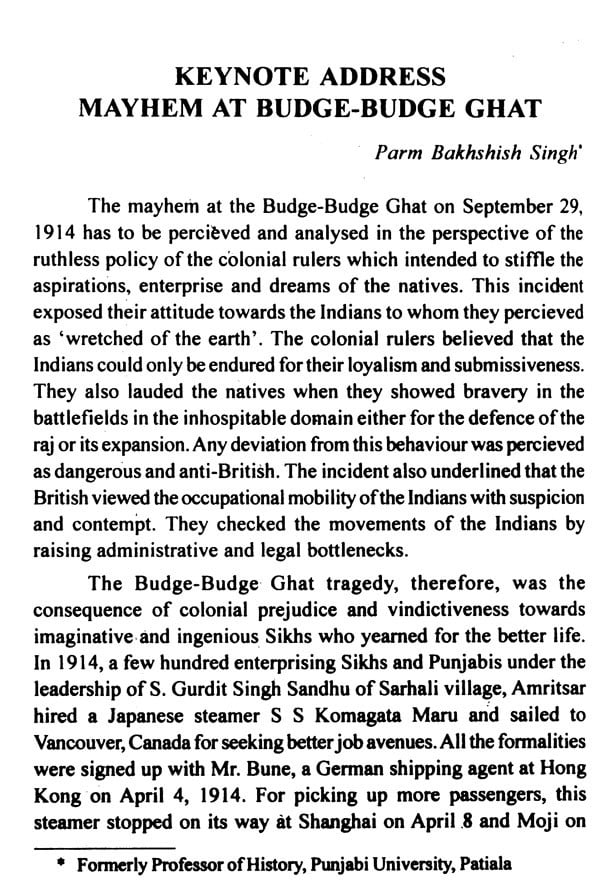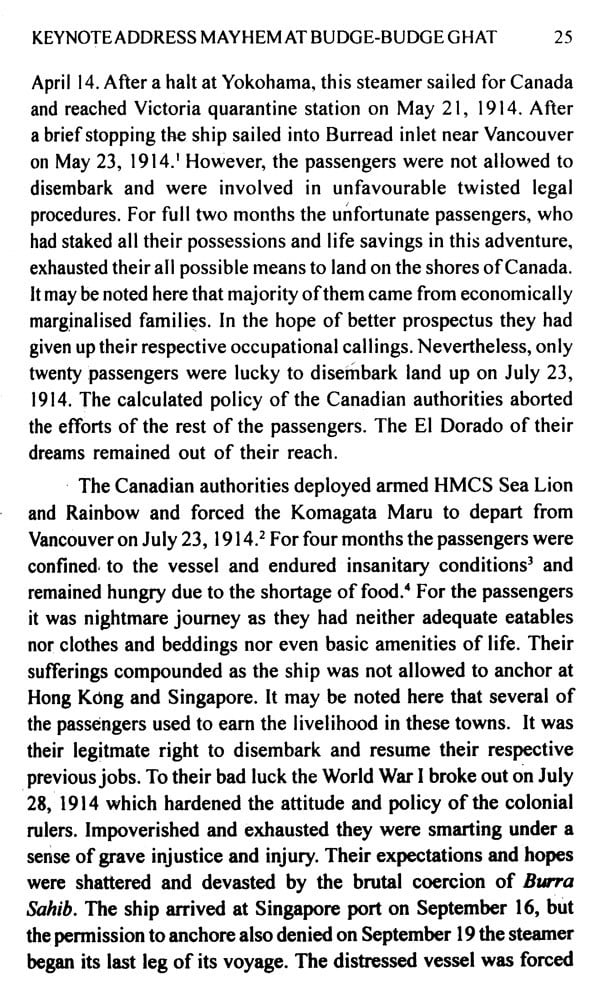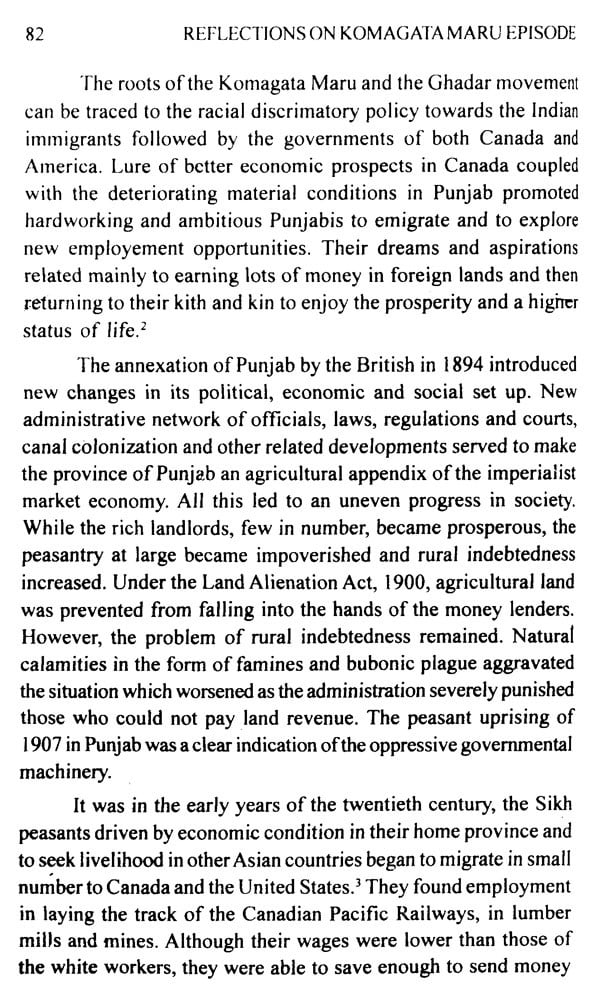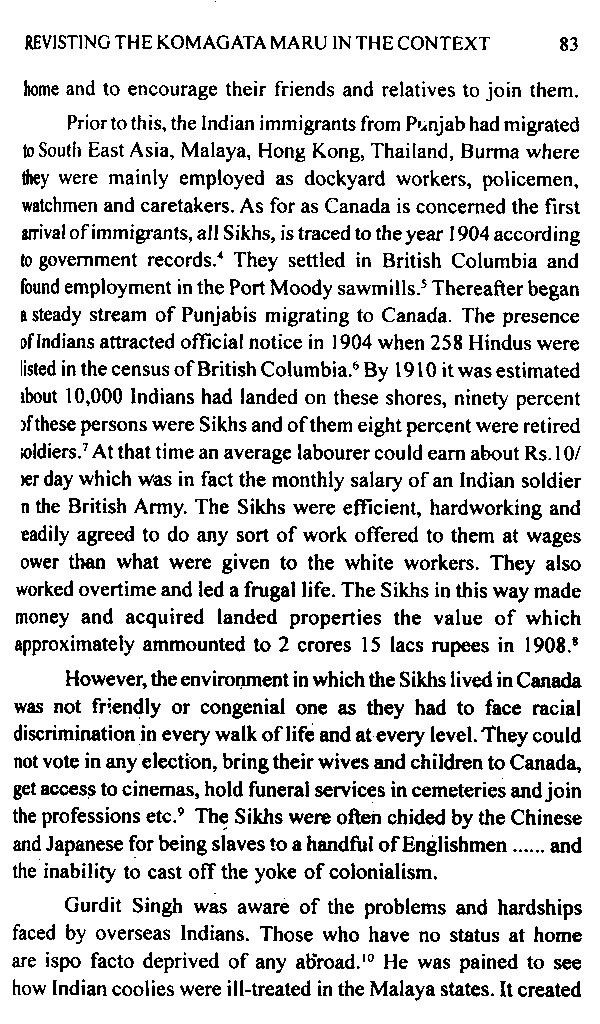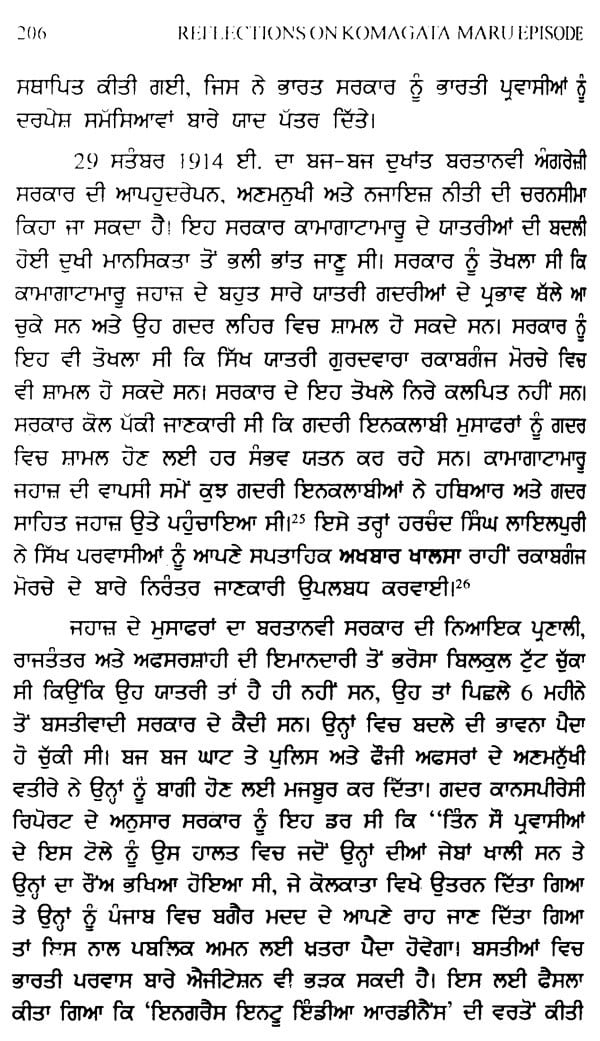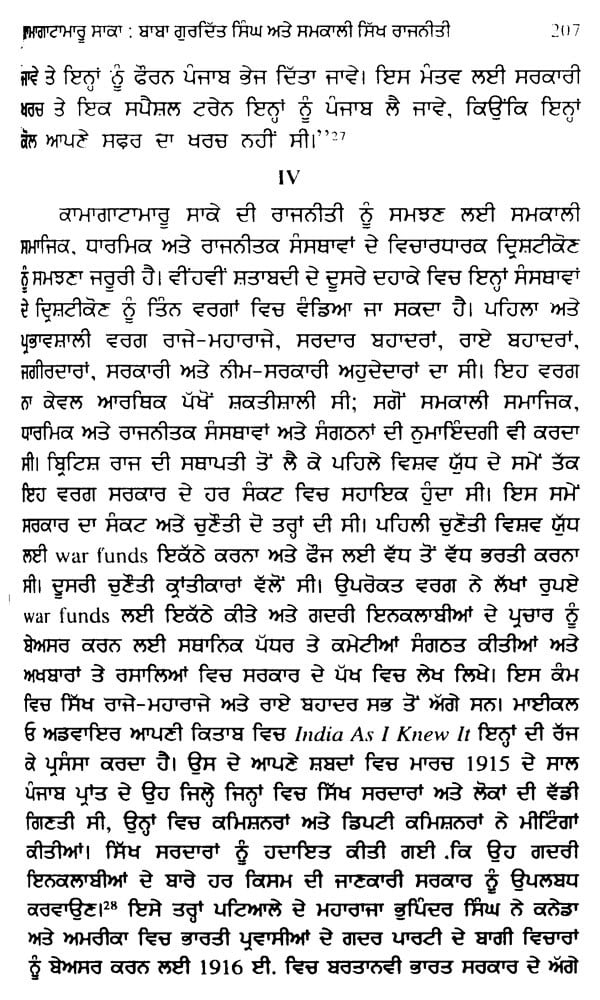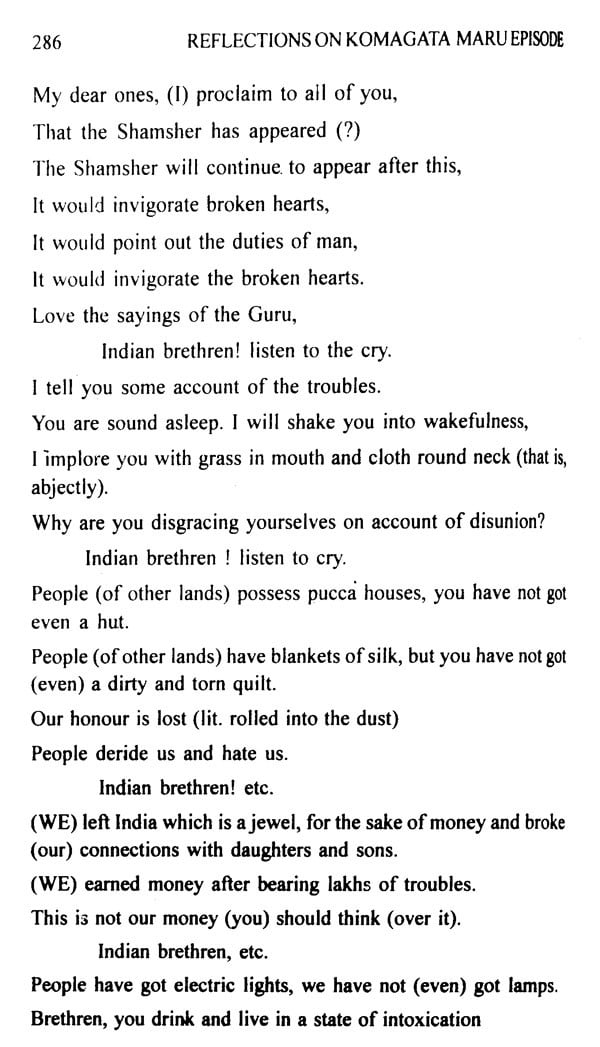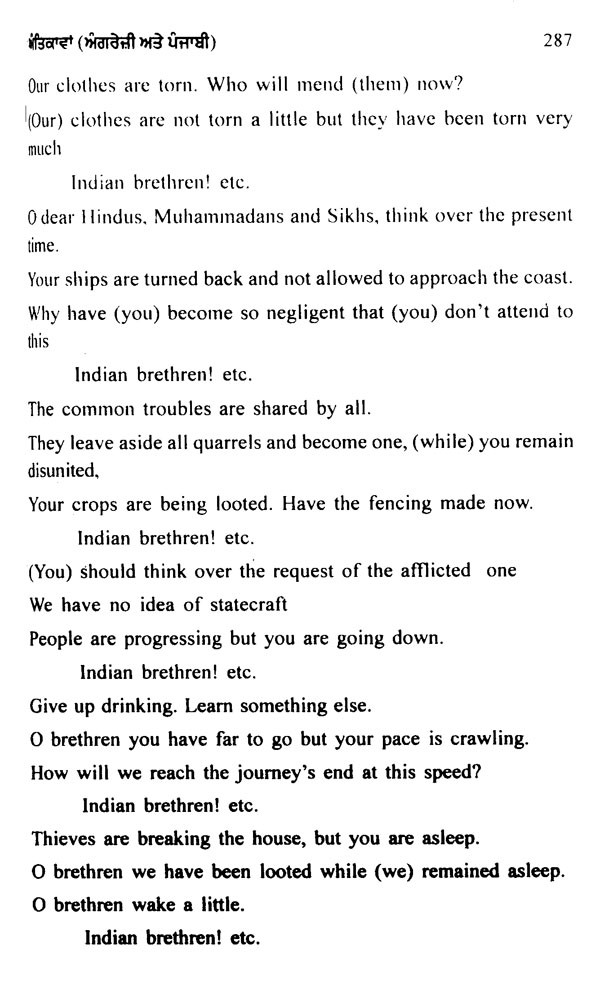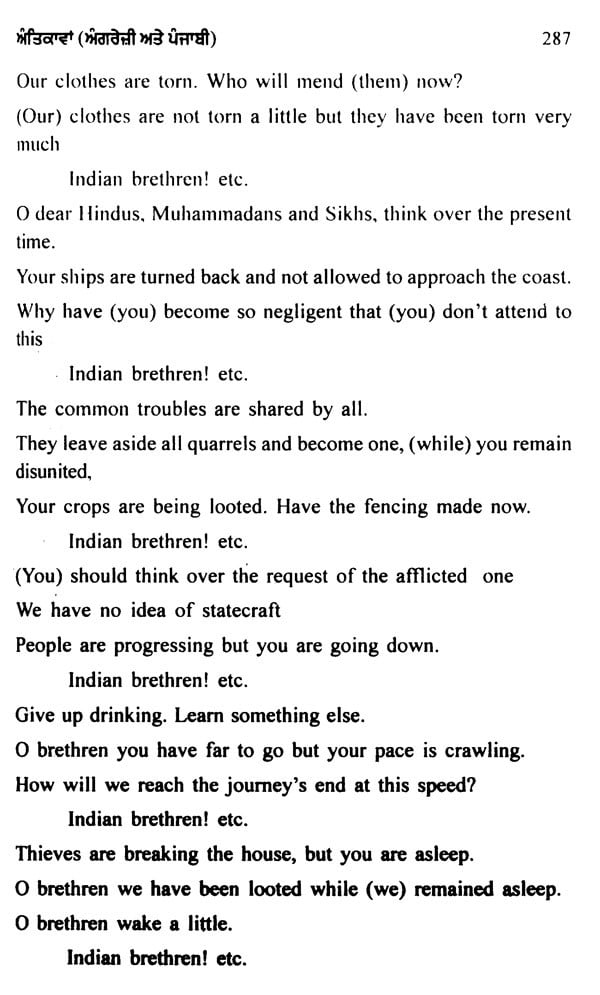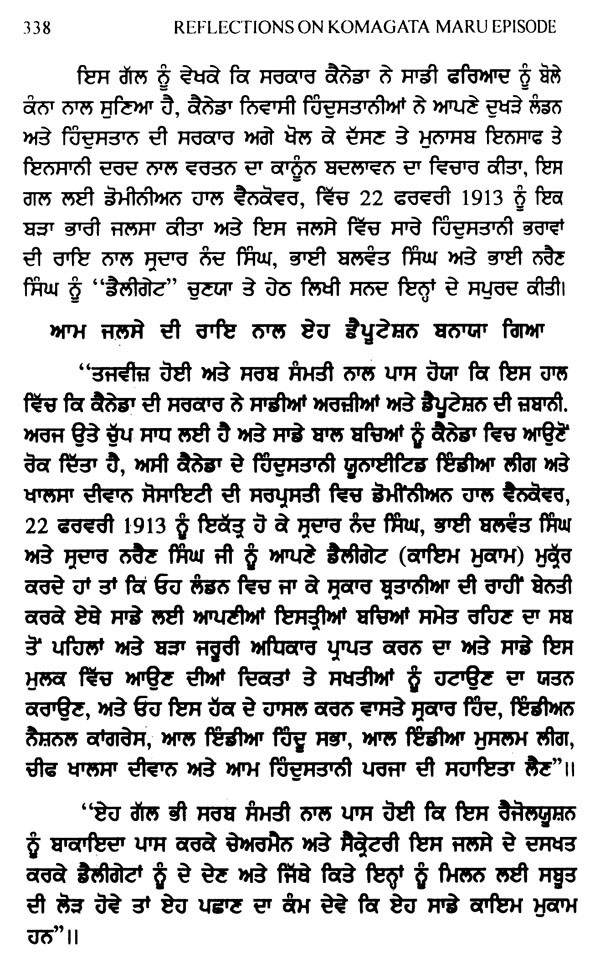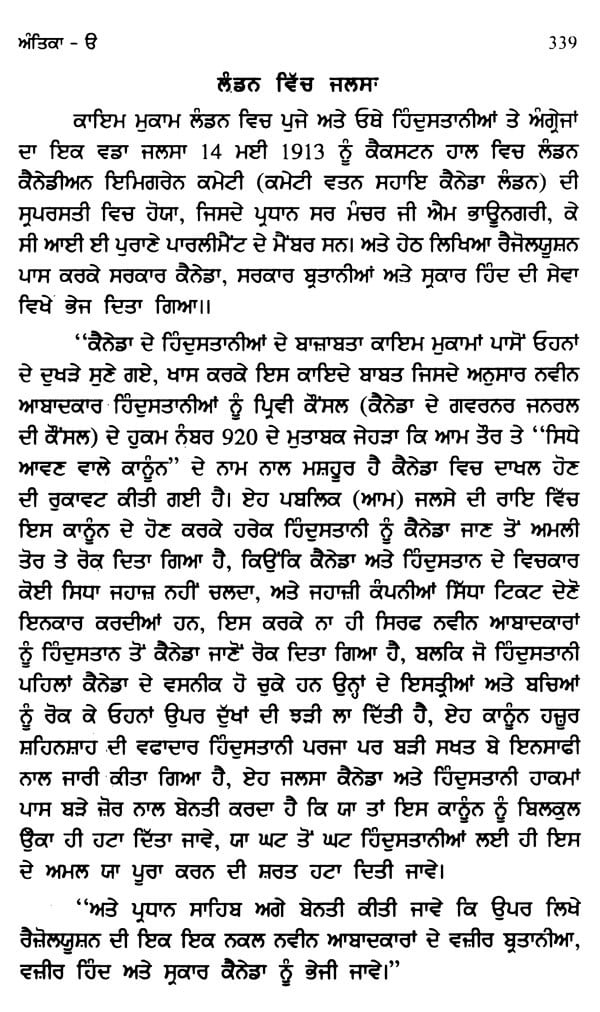Foreword It is a matter of great satisfaction that Guru Nanak Dev University organized seminars the Reflections on Ghadar Movement on November 14-15, 2013 and Komagata Maru Episode on October 28. 2014. We invited the scholars of repute to participate and present their articles on these two interconnected events. For the benefit of researchers, students and common readers, we have published their articles in two books: Reflections on Ghadar Movement (2014) and Reflections on Komagata Maru Episode (2016). Realizing the relevance of the Komagata Maru Episode and Ghadar Movement and their regional as well as national ramifications, the University has established a chair for the study of Ghadar Movemenrt which, it is hoped, will further explore the new dimensions and complexities of this movement and collect and tabulate source material.
A popular version of Komagata Maru Episode is that recruitment in the British Indian armies opened a new route to the overseas Indian settlements in the Far East countries like China, Hong Kong, Malaya and Singapore. After this the retired police/ army personnel wanted to settle in America and Canada as they heard stories of better economic prospects in these countries. Since these settlers were largely Sikhs, Baba Gurdit Singh was touched by the aspirations as well as problems of his co-religionists. He was inspired by Sikh leaders like Bhai Takhat Singh Ferozepur to make arrangements for the continous journey of the passengers from India to Canada. Since there was no ship which could ferry the Indians from Calcutta to Canada, Baba Gurdit Singh hired a Japanese transport vessel named Komagata Maru and got it modified for the convenience of the passengers to be transported.
Preface Hundred years span is enough to perceive historical events differently as our perceptions and point of views as well as methodology are influenced by several contemporary variables. The governments and political parties use patriotism and nationalism for their vested interest. Similarly, communal organizations appropriate history for enhancing their sectarian images. Consequently, the study of patriotism and nationalism give way to the popular discourse. It is often noted that even the professional historians develop tendency to eulogize the historical persona and overlook those hard facts which do not cater to the contemporary sensibility. The British perceived patriots and nationalists in terms of law-breakers, conspirators and rebels. British police and intelligence prepared reports and diaries of those activists and leaders who consistently challenged the British raj. Similarly, the British judiciary has left a huge corpus of judicial files pertaining to the court proceedings and judgements. The nationalist scholars and propagandists termed the British raj and its apparatus as the colonisers, making Indian economy subservient to the British imperialism, and which looted Indian wealth and suppressed anti- British agitations/movements ruthlessly. Thus we have legacy of explaining the competing roles of the Dominion Governments and of the nationalists and patriots. Among the latter the Indian immigrants constituted a prominent section. As one of contributors tell us that Audio Visual Media has effectively refurbrished these roles for the consumptions of the younger generations.
Introduction When Baba Gurdit Singh launched Guru Nanak Shipping Company in 1914, it underlined a conviction of the Punjabi emigrants that they had the right to enter into foreign countries which were under the British empire. This right, they believed, had been bestowed on them by the British Government for being its subject. The Sikh emigrants who were largely ex-soldiers added more weight to this right when they said that they fought for the expansion of the British empire in the North-West and Far East countries. Moreover, they percieved the British Government as their mai- haap sarkar and they being its loyal subject. Therefore, they asserted that the British Government was morally bound to protect its loyal subject from being discriminated socially and culturally. They also expected that this sarkar must give them justice. The exaggerated claim of the Sikhs originated from the fact that the British recruited them in the army on preference. The preferential treatment bound those Sikhs with the British raj morally. Simultaneously, the Singh Sabhas, Diwans and Chief Khalsa Diwan inculcated a spirit of loyalty among the Sikhs in late nineteenth and early twentieth century’s. Moreover, these Sikh organizations set a precedent of asking for any political or constitutional favor from this sarkar as a matter of reward for their loyal services rendered to the British raj. The Sikh literature is replete with the assertion of being Namak halal to the raj. Since Baba Gurdit Singh rose from an ordinary agriculturist to a prosperous businessman under the raj, he shared the ethics of the loyalty propagated by these Editor's courtesy to the data taken from Ray Gardner's essay "When Vancouver turned back the Sikhs" in Maclean's Magazine, November 8, 1958.
**Contents and Sample Pages**
